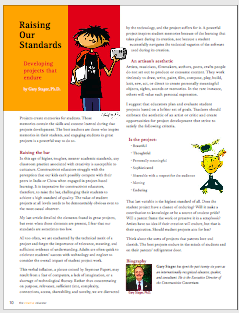What makes a good Project?
TOPIC 1.
THE LANGUAGE AS A COMMUNICATION MEANS: ORAL AND WRITTEN LANGUAGE. FACTORS DEFINING A COMMUNICATIVE SITUATION: ENCODER, DECODER, FUNCTIONALITY AND CONTEXT.
The prominent role of the context is acknowledged in the legal framework concerning methodological suggestions for the teaching of FLs (a reference to the methodological orientations in the regional curriculum should be included). In this sense, contextualising learning is seen as an attempt to recreate real-life situations which facilitate the learners´ comprehension of the language. This inference of meaning is an indispensable strategy which shall bring about practical learning and plenty of linguistic benefits. Indeed, the involvement of students in meaningful communicative tasks, like the design of a travel guide or the preparation of a school trip, represents an ideal situation in which the context guides them towards understanding.
This contextualization of learning implies that the teacher should assume the role of “creator of learning scenarios” which engage children and create willingness to infer meaning. In this light, one of the most remarkable approaches is project based learning (PBL). Libow and Stager (2013) define the term project as kind of work which is substantial, shareable, and personally meaningful. In other words, when a teacher creates a well-designed prompt that capitalizes the learners´ curiosity, they can embark on complex, long-term learning adventures.
A highly remarked concept by Libow and Stager is that of “shareability”. With this term they refer to the idea of producing a product that can be shared with other students, the learning community and even a much wider digital learning community. The active involvement of students in creating something “real” in a FL to be shared, presented, personalised and uploaded to a digital platform, shall foster not only real use of the foreign language, but also a high level of motivation and involvement on the part of the students. This concept coined by Libow and Stager refers to an interesting field in constant development, the new digital contexts our learners are so familiar with and also so fond of. After all, the technological revolution has already created “digital natives”; and also a vast amount of possibilities for the contextualisation of learning in engaging and appealing proposals.




